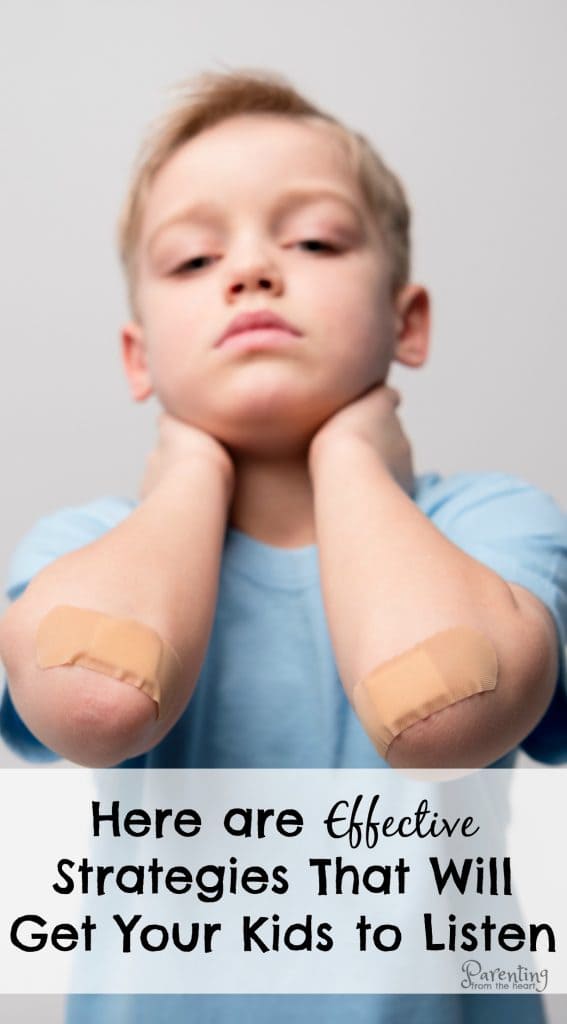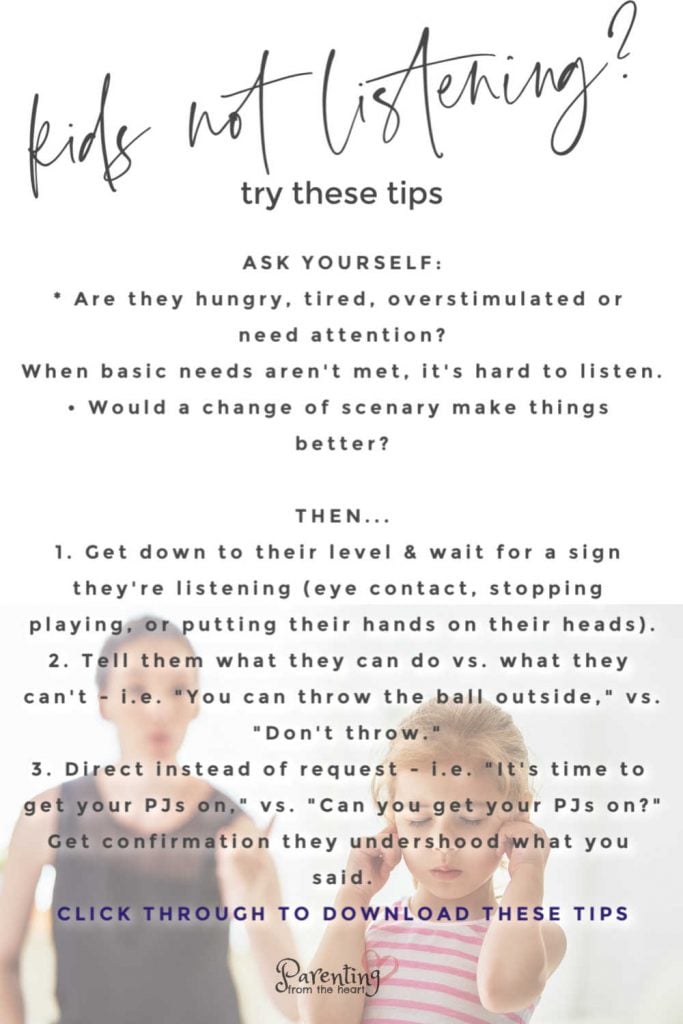It’s so frustrating to repeat ourselves endlessly. These positive parenting strategies work in a way that kids will…
It’s so frustrating to repeat ourselves endlessly. These positive parenting strategies work in a way that kids will listen (almost) every time.
“It looks like a beautiful ballroom!” she said. My five-year-old daughter was awestruck. She approached the open restaurant floor and twirled with wonderment. Even though we had only entered a bistro, I couldn’t fault her enthusiasm. The restaurant was warm and inviting.
As we sat down to dine with some friends from out of town, everything felt connected. We were celebrating was their last night after a fun-filled weekend together. My kids had just spent the last hour swimming, jumping, and moving from the hotel pool to the hot tub and back again.
If there was a good time to bring two young kids to a nicer restaurant, it was now. They were exhausted and ready to eat.
When ten minutes turned to twenty and the food still hadn’t arrived, things weren’t going quite as ‘swimmingly.’ Soon, both kids were up on their knees bouncing. Next, my daughter was playing with the chain links holding the curtains as my son attempted to slip down his chair onto the floor. Of course, my husband wasn’t there yet. And I could sense our company was becoming increasingly unimpressed my kids’ agitation.
“Stop playing with your cutlery.”
“Don’t touch that.”
“Get down.”
This approach wasn’t working. At all.

In the past, when I corrected my children only using negative language, things fell apart. When I try to get my kids to behave, “don’t,” “stop,” and “no, no, no,” is more like white noise than effective communication. The reason? Negative language requires kids to double process. When kids hear, “Don’t do that,” he or she is left to answer:
For a young child, that’s a lofty request. Especially when they’re fidgety, struggling to self-regulate, and bored.
Related reading: This is How Negative Language Impacts Kids & Here’s What to do Instead
Already, kids are less inclined to listen when faced with these statements. To compound the issue, the more children hear what they shouldn’t be doing, the less they want to comply. The reason for this is pretty simple. In general, people of all ages lose the motivation to cooperate with someone’s expectations when they feel like they can do no right.
In order to get our kids to listen, we must phrase our discipline and criticisms positively. My critics read these words and think I mean you should never ever use the words stop or no with your children. That certainly isn’t realistic nor is it the case. However, to get our children to listen to us we must speak in a way that both is easy to understand and is motivating to listen to.
Saying things like, “Sit down,” as opposed to, “Stop it,” is a vast improvement. However, in order to get out children to listen, we must also tell them how to direct their energy when they are struggling to self-regulate.
Related reading: The Surprising Strategy to Get Your Kids to Listen Without Repeating Yourself
The more kids hear what they shouldn’t be doing, the less likely they are to comply. My kids instantly lost motivation to make a better choice when they are told repeatedly what they did wrong.
That’s when I realized I wasn’t telling my children what they could do. Sure, I had told them to sit. But I hadn’t told them what they could do to preoccupy their time while waiting.
I replaced my requests for them to sit on their bums with asking if they’d like to go for a walk.
Instead of asking them not to play with their cutlery, I suggested they play with a handful of toys I had forgotten in the bottom of the diaper bag.
It worked like a charm. The last ten minutes spent waiting for our dinners was peaceful and pleasant.
Related reading: Best Positive Parenting Disciplinary Techniques & Resources
Parenting in this way is definitely more challenging than simply putting limitations on our children. However, our kids will listen so much better as a result of our efforts.

Scolding Undermines Effective Parenting. This is Why (and What to do Instead).
Why Positive Parenting is Essential Now When it May Not Have Been in the Past
How to Talk so Kids Will Listen and Listen so Kids Will Talk
Why Punishment is Ineffective and what to do instead
Ask any parent who has watched a two‑year‑old “fail” to hear the call to put on shoes—only to…
Toddlers can be confusing, to say the least. One moment they’re clinging to your leg like a baby…
Affection wasn’t really a thing in my childhood home. My parents were good providers, but hugs, “I love…